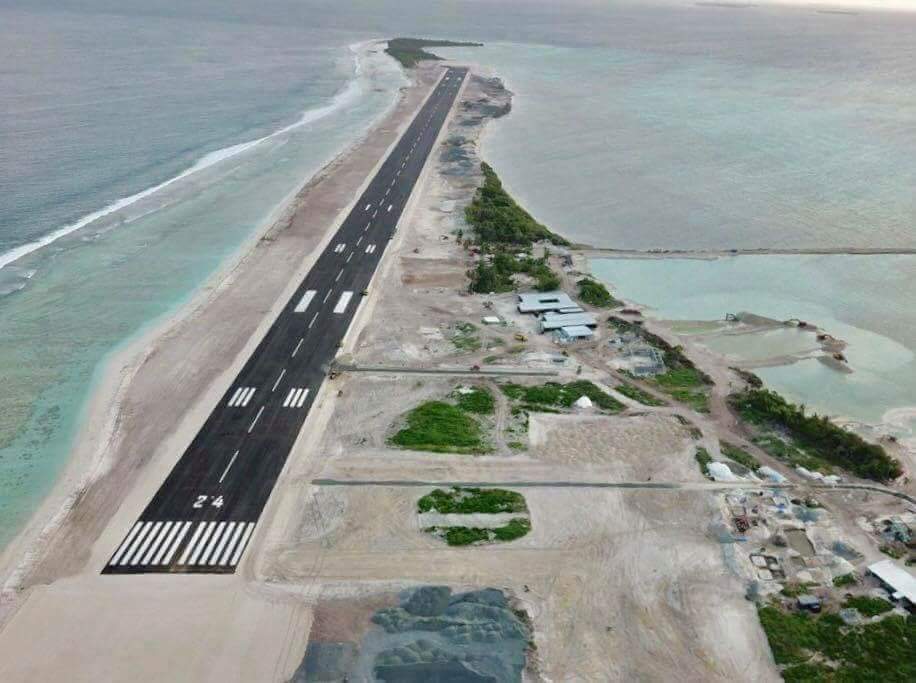EPA rejects Maafaru runway expansion project
A lawmaker accused the watchdog of obstructing atoll development.

30 Dec 2019, 09:00
The Environment Protection Agency rejected a proposed expansion of the Maafaru airport runway on Saturday after an environment impact assessment warned of irreversible damage and loss of vegetation.
The aim of accommodating Boeing 777 twin-jet was “not a valid justification when compared to the long-term environmental and socio-economic negative impacts that would arise from this project,” the EPA concluded, listing 11 reasons for its decision.
Landing of large aircraft was expected to be minimal and reclamation of land for runway expansion would cause “permanent loss of a large area of Maafaru lagoon, affecting the surrounding coral reef ecosystem.” The proposed sand burrow site was a turtle grazing area with a rich seagrass bed home to juvenile marine life, it added, whilst dredging the inner lagoon was likely to cause beach erosion and lead to loss of turtle nesting sites.
An estimated 22,000 trees, a major portion of the island’s vegetation, was also expected to be affected by the airport expansion footprint. If compensation plots were to be allocated from the other end of the island for buildings in the expansion area, “the last remaining mature vegetation on the island would also be destroyed and Maafaru would be left barren of its original mature vegetation.”
Become a member
Get full access to our archive and personalise your experience.
Already a member?
Discussion
No comments yet. Be the first to share your thoughts!
No comments yet. Be the first to join the conversation!
Join the Conversation
Sign in to share your thoughts under an alias and take part in the discussion. Independent journalism thrives on open, respectful debate — your voice matters.




